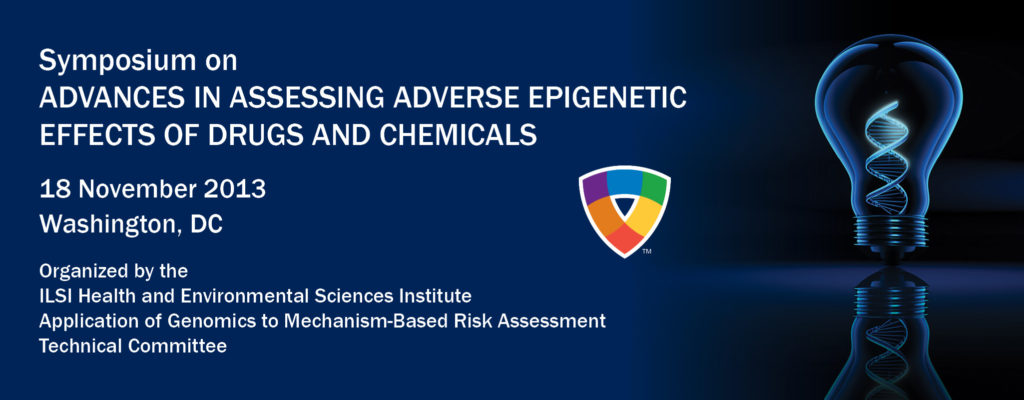Symposium on Assessing Adverse Epigenetic Effects of Drugs and Chemicals
- Start Date/Time :
- Location : Washington, District of Columbia, USA
Workshop Abstract
Epigenetics, which represents mechanisms that control gene expression in a potentially heritable way without modification of the DNA sequence, is a rapidly developing area of research with relevance to stem cell differentiation, developmental processes, cancer and other diseases. Several mechanisms, including DNA methylation, histone modifications, and regulatory noncoding RNAs, appear to influence gene expression in an epigenetic manner. Epigenetic alterations can be induced by exposure to environmental chemicals or as side effects of drugs and thus have implications for human health. In addition, drugs that target specific epigenetic mechanisms are being developed to treat human disease, including several that have been approved for use.
New technological advances have led to recent and rapid progress in the characterization and mapping of epigenetic changes. However, there are significant knowledge gaps in understanding the relevance of such changes for toxicological safety assessment that requires further investigation with respect to the science, including potential model systems, endpoints and the most relevant techniques that could be employed.
The HESI Technical Committee on the Application of Genomics to Mechanism-based Risk Assessment, whose mission is to develop a scientific basis for application of genomic methodologies to mechanism-based risk assessment, hosted a workshop on epigenetics and its potential implication for toxicology. This topic was the subject of a HESI-sponsored workshop in 2009 on the state of the science of epigenetics. A conclusion from the meeting was that "a great deal still needs to be learned prior to being able to rationally incorporate epigenetic evaluation into safety assessment." The 2013 workshop will review the current status of different areas of epigenetics research, provide an overview of available methods, and then use case studies to expand on topics with potential relevance for toxicological assessment. The goal is to obtain an up-to-date overview on epigenetic processes with probable toxicological implications, and to identify specific questions/issues that would be of interest for HESI to pursue further, perhaps in the form of new scientific research projects organized by HESI and supported by members of the Genomics Committee.
Draft Program
A draft program is available here.
Symposium Details
When: November 18, 2013 (full day)
Where: Madison Ballroom, Loews Madison Hotel, Washington, DC
Registration
Click here to register for this free symposium. Space is limited, so sign up early! The deadline for registration is November 1.
Accommodations
A room block has been reserved at the Loews Madison for workshop participants. The group rate is $229/night, plus tax, for single or double occupancy. Click here to reserve. The deadline to reserve in the block is November 1.
For more information, please contact Dr. Raegan O'Lone.
